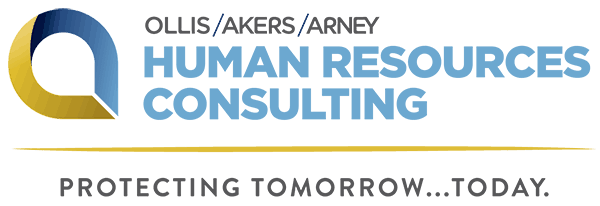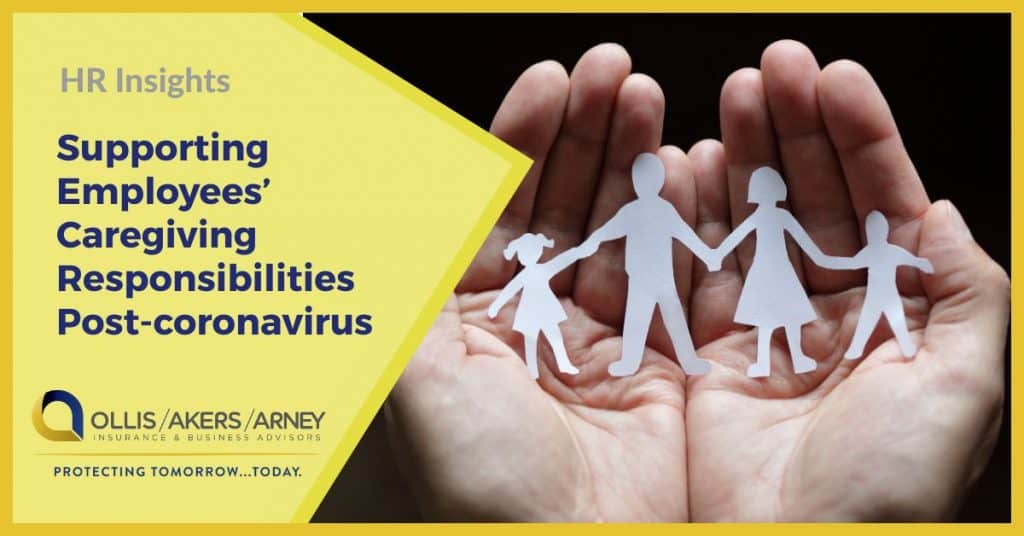In response to the COVID-19 pandemic, day cares and schools shut their doors. Months later, child care centers remain closed in many parts of the country, which means that parents are tasked with juggling caregiving and work responsibilities. In fact, according to a survey from Boston Consulting Group (BCG), 60% of U.S. parents report that they’ve had no outside help with child care during the pandemic.
Balancing work and caregiving responsibilities can be difficult and can contribute to decreased productivity, poor mental health and increased stress among employees. As a potential second wave of COVID-19 cases looms in the future, schools and day cares may remain closed in the fall and beyond. Parents are faced with the decision about in-person education, virtual learning or home schooling. While much attention is given to parents trying to balance their professional responsibilities—likely at home—with home-schooling and taking care of their children, there are also millions of people who are juggling remote work and elder care.
Employers across the country are implementing initiatives to help employees manage caregiving responsibilities during the pandemic.
The Importance of Supporting Employees
During these uncertain times, employees are understandably experiencing significant stress—which can lead to lower productivity and morale, and increase their risk for health conditions, absenteeism and higher health care costs.
Regardless of whether your business is asking employees to physically return to the workplace or employees are working remotely from home, it’s important that you implement initiatives designed to help employees manage their caregiving responsibilities.
The FFCRA Impact on Employers
Employers should familiarize themselves with new leave requirements:
- The Families First Coronavirus Response Act (FFCRA) provides employees with paid leave for reasons related to COVID-19.
- The Emergency Family and Medical Leave Expansion Act requires employers to provide 12 weeks of leave to employees to care for a child whose school or care facility has closed.
- The Emergency Paid Sick Leave Act requires employers to provide 80 hours of paid sick time to employees.
What Are Other Employers Doing?
According to the same BCG survey, the following initiatives were most commonly being offered to employees:
- Work-from-home arrangements
- Workplace flexibility
- Paid or unpaid family leave
- Employer-sponsored child care for essential workers
How employers are helping employees manage caregiving responsibilities during the pandemic varies—and there are considerations for employers to review to best support their base of employees.
Actions for Employers
Especially if faced with hardships as a result of the pandemic, flexible workplace policies can help organizations rebound quickly as soon as business improves. Consider the following general employment best practices:
- Monitor compensation practices and performance appraisal systems for patterns of potential discrimination against caregivers. Ensure that performance appraisals are based on employees’ actual job performance and not on stereotypes about caregivers.
- Review workplace policies that limit employee flexibility to ensure they are necessary for business operations. Examples of such policies include fixed hours of work and mandatory overtime.
- Encourage employees to request flexible work arrangements that allow them to balance work and personal responsibilities. Arrangements may include flextime programs, compressed work weeks, telecommuting, part-time work and job sharing.
- If overtime is required, make it as family-friendly as possible. Determine whether a voluntary, rather than mandatory, overtime system would meet the needs of the organization. If not, permit employees to schedule overtime in advance so they can arrange for caregiving responsibilities.
- Reassign job duties that employees are unable to perform because of pregnancy or other caregiving responsibilities.
- Provide reasonable personal or sick leave to allow employees to engage in caregiving even if not required to do so by the FMLA.
- Post employee schedules as early as possible for positions that have changing work schedules. That’ll help employees arrange in advance for caregiving responsibilities.
- Promote an inclusive workplace culture. Cultivate a professional work environment that recognizes and appreciates the contributions of all workers and demonstrates respect for employees’ personal lives.
Remember, not every initiative will be the right one for you and your company. Be sure to carefully evaluate the pros and cons of each initiative, and realistically assess whether it’s a feasible option.
Putting Employees First
Since burnout is the result of prolonged and chronic workplace stress, it’s important to know how to recognize the signs—both physical and non-physical—of workplace stress.
While it may not be possible to eliminate job stress altogether for your employees, you can help them by:
- Encouraging employees to utilize their paid time off
- Incorporating company-sponsored activities to give employees a reason to leave their desks and take a break
- Training managers on how to keep employees engaged and motivated at work, and how to address burnout with employees
For More Information
Burnout is a serious syndrome that may be affecting your employees. As such, it’s important that you recognize the signs of burnout and take steps to prevent it at your workplace. As everyone is navigating the COVID-19 pandemic, that can start with recognizing and accommodating employees’ caregiving responsibilities.
For more information on how to continue supporting employees during the pandemic and to see how your policies compare to others in the area, contact Ollis/Akers/Arney Insurance & Business Advisors today at (417) 881-8333 or OllisAkersArney.com.
[elementor-template id=”3875″]
This HR Insights is not intended to be exhaustive nor should any discussion or opinions be construed as professional advice. © 2020 Zywave, Inc. All rights reserved.






